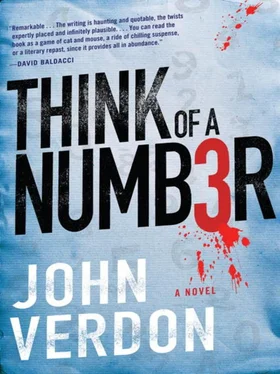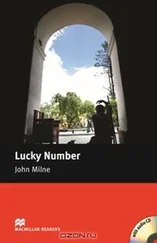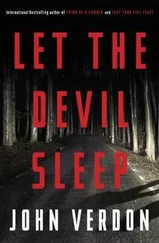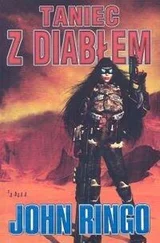To rest in peace, act now
Gurney thought it through one more time. It was almost too simple, and he wanted to be sure he hadn’t overlooked some obvious problem that would blow a hole in his elegant hypothesis. He noted a variety of facial expressions around the table-mixtures of excitement, impatience, and curiosity-as everyone waited for him to speak. He took a long, deep breath.
“I can’t say for certain that this is exactly how it was done. However, it’s the only credible scenario that’s occurred to me in all the time I’ve been wrestling with those numbers-which goes back to the day Mark Mellery came to my home and showed me the first letter. He was so baffled and frightened by the idea that the letter writer knew him so well he could predict what number he’d think of when asked to think of any number from one to a thousand. I could feel the panic in him, the sense of doom. No doubt it was the same with the other victims. That panic was the whole point of the game that was being played. How could he know what number I’d think of? How could he know something so intimate, so personal, so private as a thought? What else does he know? I could see those questions torturing him-literally driving him crazy.”
“Frankly, Dave,” said Kline with ill-concealed agitation, “they’re driving me crazy, too, and the sooner you can answer them, the better.”
“Damn right,” agreed Rodriguez. “Let’s get to the point.”
“If I may express a slightly contrary opinion,” said Holdenfield anxiously, “I’d like to hear the detective explain this in his own way at his own pace.”
“It’s embarrassingly simple,” said Gurney. “Embarrassing to me, because the longer I stared at the problem, the more impenetrable it seemed to be. And figuring out how he pulled off his trick with the number nineteen didn’t cast any light on how the six fifty-eight business worked. The obvious solution never occurred to me-not until Sergeant Wigg told her story.”
It was not clear whether the grimace on Blatt’s face resulted from an effort to pinpoint the revelatory element or from stomach gas.
Gurney offered Wigg a nod of acknowledgment before going on. “Suppose, as the sergeant has suggested, our obsessed killer devoted two hours a day to writing letters and at the end of a year had completed eleven thousand-which he then mailed out to a list of eleven thousand people.”
“What list?” Jack Hardwick’s voice had the intrusive rasp of a rusty gate.
“That’s a good question-maybe the most important question of all. I’ll come back to it in a minute. For the moment let’s just assume that the original letter-the same identical letter-was sent out to eleven thousand people, asking them to think of a number between one and a thousand. Probability theory would predict that approximately eleven people would choose each of the one thousand available numbers. In other words, there is a statistical likelihood that eleven of those eleven thousand people, picking a number entirely at random, would pick the number six fifty-eight.”
Blatt’s grimace grew to comical proportions.
Rodriguez shook his head in disbelief. “Aren’t we crossing the line here from hypothesis to fantasy?”
“What fantasy are you referring to?” Gurney sounded more bemused than offended.
“Well, these numbers you’re throwing around, they don’t have any evidentiary basis. They’re all imaginary.”
Gurney smiled patiently, although patience was not what he felt. For a moment he was distracted by the awareness of his own dissembling presentation of his emotional reaction. It was a lifelong habit-this reflexive concealment of irritation, frustration, anger, fear, doubt. It served him well in thousands of interrogations-so well he’d come to believe it was a talent, a professional technique, but of course at root it wasn’t that at all. It was a way of dealing with life that had been part of him for as long as he could remember.
“So your father never paid attention to you, David. Did that make you feel bad?”
“Bad? No, not bad. No feelings about it at all, really.”
And yet, in a dream, one could drown in sadness .
Good Lord, no time for introspection now.
Gurney refocused in time to hear Rebecca Holdenfield say in that no-nonsense Sigourney Weaver voice of hers, “I personally find Detective Gurney’s hypothesis far from imaginary. In fact, I find it compelling-and I would ask again that he be allowed to complete his explanation.”
She addressed this request to Kline, who turned up his palms as if to say that this was everyone’s obvious intention.
“I’m not saying,” said Gurney, “that exactly eleven of the eleven thousand people picked the number six fifty-eight-only that eleven is the most likely number. I don’t know enough about statistics to quote probability formulas, but maybe someone can help me out with that.”
Wigg cleared her throat. “The probability attaching to a range would be far higher than for any specific number within the range. For example, I wouldn’t bet the house that a particular number between one and a thousand would be picked by exactly eleven people out of eleven thousand-but if we added a plus-or-minus range of, say, seven in either direction, I might be tempted to bet that the number of people picking it would fall within that range-in this case that six fifty-eight would be picked by at least four people and no more than eighteen people.”
Blatt squinted at Gurney. “Are you saying that this guy sent out mailings to eleven thousand people and the same secret number was hidden inside all those little sealed envelopes?”
“That’s the general idea.”
Holdenfield’s eyes widened in amazement as she spoke her thoughts aloud to no one in particular. “And each person, however many there were, who happened to pick six fifty-eight for whatever reason, and then opened that little envelope inside, and found the note saying that the writer knew him well enough to know he’d pick six fifty-eight… My God, what an impact that would have!”
“Because,” added Wigg, “it would never occur to him that he wasn’t the only one getting that letter. It would never occur to him that he was just the one out of every thousand who happened to pick that number. The handwriting was the icing on the cake. It made it all seem totally personal.”
“Jesus F. Christ,” croaked Hardwick, “what you’re telling us is that we’ve got a serial killer using a direct-mail campaign to prospect for victims!”
“That’s one way of looking at it,” said Gurney.
“That just might be the craziest thing I’ve ever heard,” said Kline, more stunned than disbelieving.
“Nobody writes eleven thousand letters by hand,” declared Rodriguez flatly.
“Nobody writes eleven thousand letters by hand,” repeated Gurney. “That’s exactly the reaction he was banking on. And if it wasn’t for Sergeant Wigg’s story, I don’t think the possibility would ever have occurred to me.”
“And if you hadn’t described your father’s card trick,” said Wigg, “I wouldn’t have thought of the story.”
“You can congratulate each other later,” said Kline. “I still have questions. Like why did the killer ask for $289.87, and why did he ask that it be sent to someone else’s post-office box?”
“He asked for money for the same reason the sergeant’s con man asked for money-to get the right prospects to identify themselves. The con man wanted to know which people on his list were seriously worried about what they might have been photographed doing. Our killer wanted to know which people on his list had picked six fifty-eight and were sufficiently unnerved by the experience to pay money to find out who knew them well enough to predict it. I think the amount was as large as it was to separate the terrified-and Mellery was one of those-from the merely curious.”
Читать дальше












